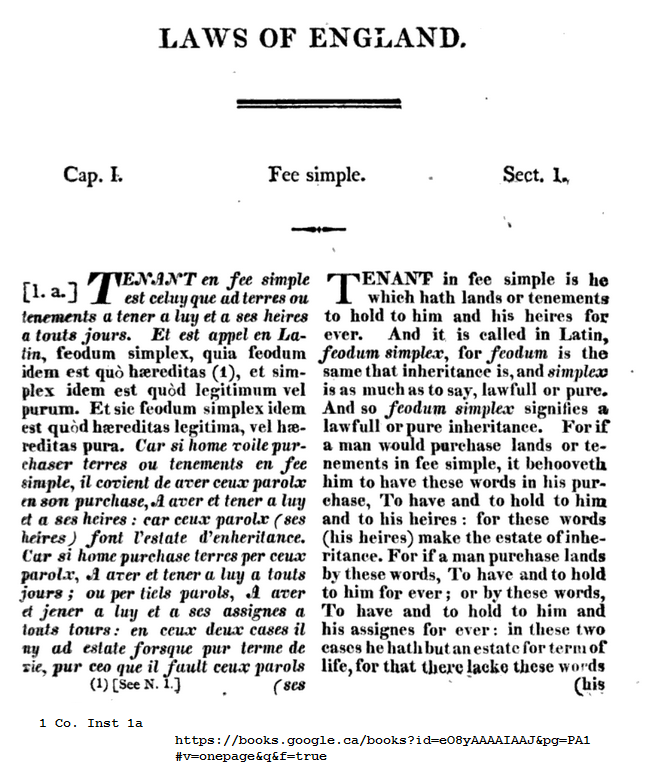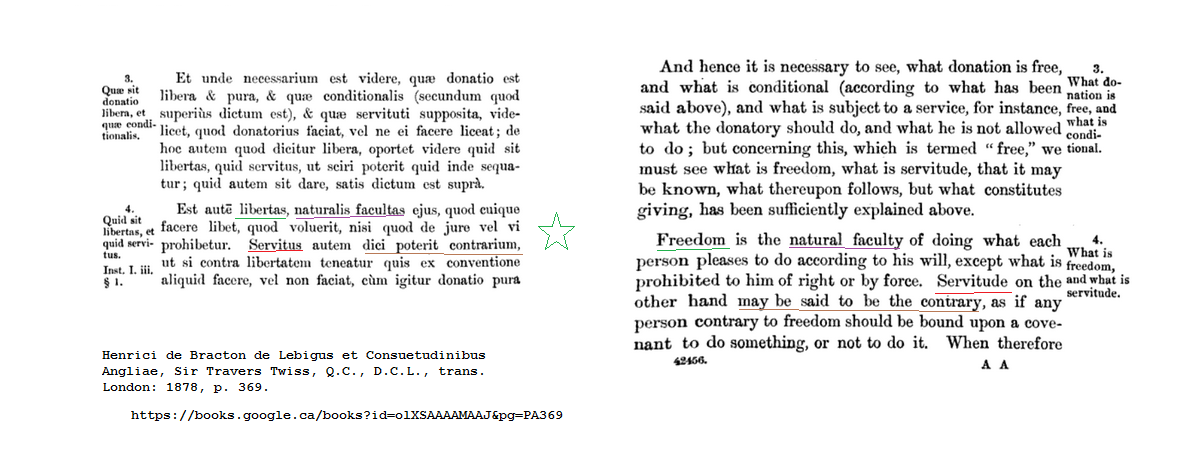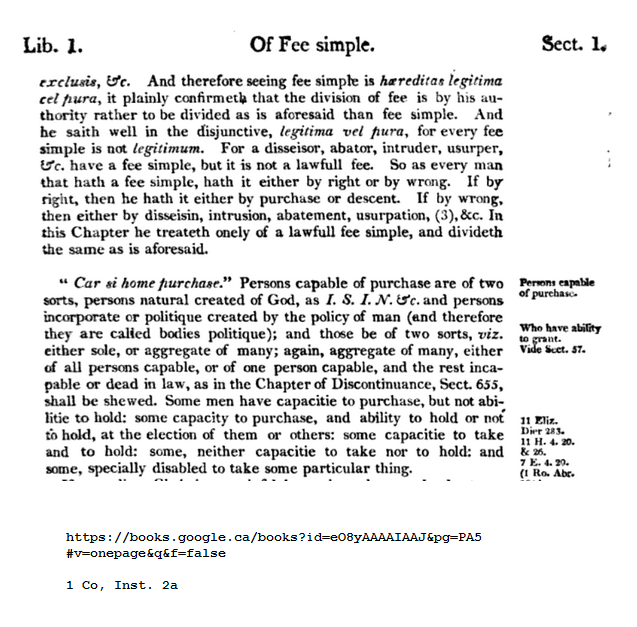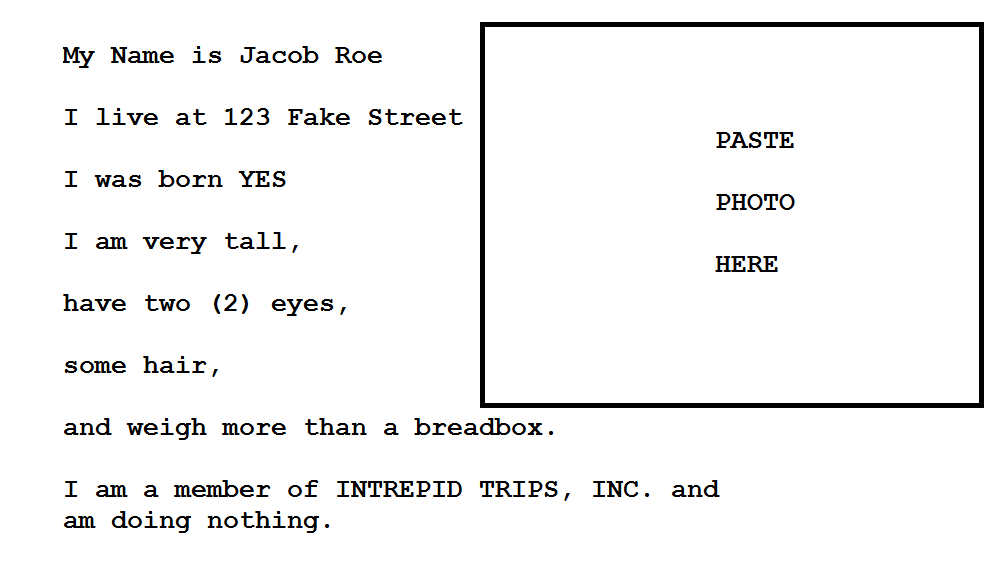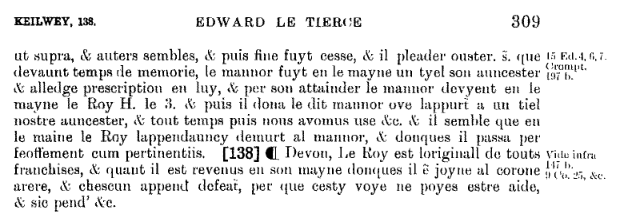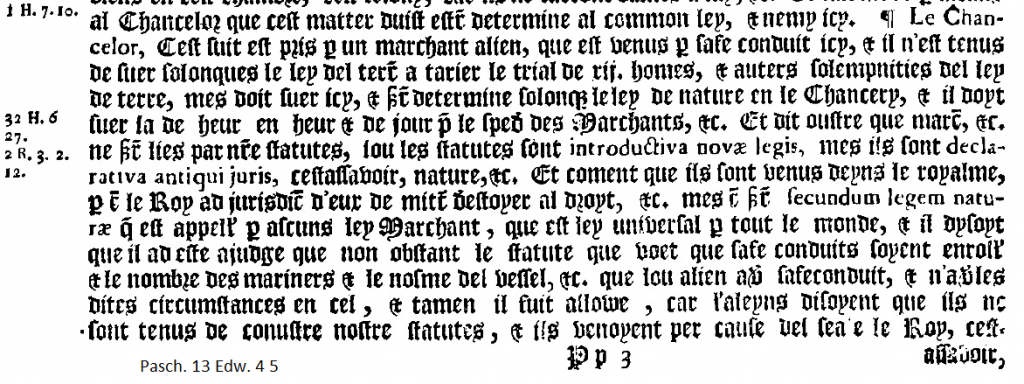The words Freedom and Servitude are contraries, and, like the words tort or fee simple, they have no real colloquial meaning. The English translation of tort is “wrong,” and the English translation of fee simple is “lawful inheritance” (1 Co Inst. 1a)
Neither of these terms, tort or fee simple, however, have a colloquial meaning of any significance. Alice may think it wrong to tell dirty jokes, but that is not what the word wrong, in its formal signification, means. Bob may think lawful inheritance is a way for the ruling class to transmit property to the next generation, unearned, and he may think it unlawful, but this does not change that lawful inheritance exists. The same is true for freedom and servitude:
“Freedom is the natural faculty of doing what each person pleases to do according to his will, except what is prohibited to him of right or by force. Servitude, on the other hand may be said to be the contrary, as if any person contrary to freedom should be bound upon a covenant to do something, or not to do it.” (Henrici de Bracton de Lebigus et Consuetudinibus Angliae, Sir Travers Twiss, Q.C., D.C.L., trans. London: 1878, p. 369.)
I would modify Twiss’s translation to say
“Freedom is the natural faculty of doing what each person please to do according to his will, except what is prohibited to him of natural right or by force. Servitude, on the other hand may be said to be the contrary, as if any person contrary to freedom should be bound upon a covenant to do something, or not to do it.”
This makes it clear that freedom, being anterior to the state, is governed by the law by which persons are made free, that is, the law of nature. And therefore, returning to Coke, there are two persons capable of purchase, that is, acquisition of goods, lands or other things:
“Persons capable of purchase are of two sorts, persons natural created of God, as I. S. I. N. &c. and persons incorporate or politique created by the policy of man (and therefore they are called bodies politique)” (1 Co Inst. 2a.)
Here we see that natural persons are created of God. Persons were free for many years before the introduction of judicial or municipal laws. Servitude, therefore, is contrary to the law of nature and is, in fact, an institution whereby one man, or group of men, capture another and demand that he fulfill covenants. Or, perhaps, one might give a gift to a person, conditioned upon performance of those covenants, for example, a Birthday Card that is not a free gift, but a gift upon condition.
Let us consider that the Hallmark Greeting Card Company (or some other Company) decides to sell people birthday cards, on agreement that anyone who uses such a birthday card must follow the bylaws of the Company. Let us also say that these Cards are used by individuals to identify themselves for the purpose of banking and other activities. They become so popular, indeed, that if you are stopped by the Police, they will think it odd that you do not give them your Birthday Card and instead recite the same information. If, however, one realized what was going on, one could clearly abandon one’s Birthday Card and, for convenience, make one’s own Birthday Card. One such example comes from the Merry Pranksters and Intrepid Trips Inc.
My Name is _______
I live at ______
I was born _______
I am __________ tall,
have ______ eyes,
_____ hair,
and weigh __________
I am a member of INTREPID TRIPS, INC. and am doing nothing.
____________
Signature
(and then, in the box) PASTE PHOTO HERE
So, one might fill in the card this way:
There is no reason why this is not a good ID card, unless one believes that the state has a monopoly on identification, but this would be in derogation of freedom, as, by freedom, one may identify as one likes, or one may not identify at all:
If you ask me what my name is, I’ll just stop and scratch my head
If you ask me what my name is, I’ll just stop and scratch my head
Well they took away my name and gave me a number instead
Of course, scratching one’s head is a gesture that indicates “I don’t know,” or, perhaps, “zero” or “nothing.” Or, one’s name could be a gesture.
As a final consideration, what are acts of parliament? Because Freedom is governed by the law of nature, there is no capacity to say that acts of Parliament, a corporation, are acts of nature:
THE conftituent parts of a parliament are the next objects of our enquiry. And thefe are, the king’s majefty, fitting there in his royal political capacity, and the three eftates of the realm ; the lords fpiritual, the lords temporal, (who fit, together with the king, in one houfe) and the commons, who fit by themfelves in another n. And the king and thefe three eftates, together, form the great corporation or body politic of the kingdom, of which the king is faid to be caput, principium, et finis. (1 Bl. Comm. 149)
Parliament is, therefore, a “body politic” and has no natural capacity, but only an artificial capacity framed by the policy of man. The King, of course, is a natural person, in the sense of the individual created of God, who has a lawful inheritance in his Kingship. Thus we are left with the question of how a natural person, created of God, is annexed to a Parliament:
Nele JCP said that every act of Parliament ought to be presumed (entendus) general, and ought to be known (conus) to everyone within the realm, because it is made for all the realm, because everyone has his attorney (representative) in Parliament, that is, the knights ‘of the shire’ (in English) for the country (pais), and the burgesses for the cities and boroughs (Mich. (2nd) 21 Edw. 4 28 fol. 55b-59b)
So, we see that people in Parliament are represented by attorneys, and, therefore, it is by this representation that people are bound to the acts of the corporation. There is no natural obligation to be represented, and, indeed, compulsory representation is a sort of servitude, as if one is bound upon a covenant to be represented and therefore bound by the acts of the corporation.
One general conflict of interest exists here. Universities are themselves corporations, and so it is clear that University graduates, who derive privileges from Parliaments (for example, only those who are members of the Corporation called the Law Society may act as attorneys without leave of the Court (or perhaps they are presumed to have leave), and only those who are members of the College of Physicians and Surgeons may act as physicians, and only those who are members of the College of Pharmacists may act as Pharmacists, etc. etc. These examples are taken from British Columbia, Canada.), and, therefore, they cannot really be trusted on this front, because a return to nature would destroy their capacity to make money from servitude.
Any restriction on being a lawyer, physician, pharmacist, etc. is a servitude, as in nature there is no body who decides who gets to do these things: all of these restrictions are by acts of corporations.
There is, however, an obligation due by the law of nature:
“And therefore thus were directly and clearly answered as well the objections drawn from the severalty of the kingdoms, seeing there is but one head of both, and the postnati and us joined in ligeance to that one head, which is copula et tanquam oculus of this case; as also the distinction of the laws, seeing that ligeance of the subjects of both kingdoms, is due to their sovereign by one law, and that is the law of nature.” ( 7 Coke Report 14 b)
Allegiance to the Sovereign is due by the law of nature. Who is the Sovereign? In British Columbia, and all of Canada, it is Elizabeth II. Or, perhaps, for indigenous persons, it is the Sovereign of their Kingdom or Nation. In either case, allegiance means obedience, and it is due by nature. This does not extend to obeying every command of the sovereign, only natural commands, as this obedience is due by nature, so therefore only extends to the law of nature. In some sense, the liege men of the sovereign are the free (liege) men of the sovereign, and the sovereign is the liege lord, or free lord. Thus both free, though from different natural perspectives: the liege lord free to govern according to natural law, and the liege man free to do whatever is not forbidden by the law of nature.

